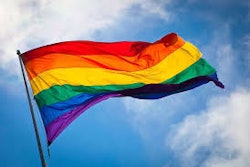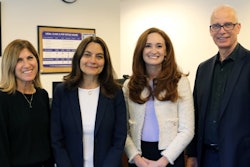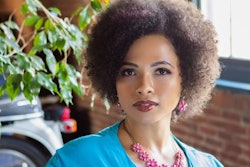NEW YORK – Taking its title from renowned author James Baldwin, on Wednesday, the City University of New York’s (CUNY) Black Male Initiative (BMI) presented the panel discussion “Nobody Knows My Name: Exploring Challenges Facing Black Gay Men in Higher Education” on Wednesday.
CUNY BMI is a university wide initiative designed to increase the enrollment and retention rates of students from groups that are severely underrepresented in higher education.
“There’s one thing that (author and scholar) Henry Louis Gates Jr. always says that I love. ‘There are about 35 million Black people in the United States and, therefore, there are 35 million different ways of being Black.’ I think that this forum and others we’re going to have are a reflection of that,” said Elliott Dawes, director of CUNY BMI.
“We don’t have a monolithic population here at CUNY and it’s important to present programming that is diverse and reaches out to the various segments of the African American and Latino communities at CUNY and in New York City,” he added.
Dawes said several of the attendees commented that this was the first BMI event they’ve attended, but they fully intend to participate in more going forward.
Moderated by journalist Antoine Craigwell, the panelists answered questions about why Black and Latino gay men feel especially marginalized in colleges and universities and how that can be remedied.
Dr. Juan Battle, professor of sociology, public health and urban education at the CUNY Graduate Center, shared a story about an experience he had when teaching undergraduates at Hunter College (part of CUNY). A group of students asked him if it was okay to put his name on a list of gay faculty that would be posted on National Coming Out Day. Several months later, he saw those students and asked why that list never went up.
“The students said, ‘Professor Battle, nobody wanted to do it. The people we went to weren’t out,’” he said. He went to one of his colleagues whom he knew was gay and was stunned when the man told him he was shocked the students assumed he was gay.
Starting in the late 1990s, on the first day of a new semester he always came out to the students in a large lecture course he taught.
“At the end of the first class three male students came up to me and said, ‘Thank you,’” Battle recalled. Over time, more and more students of diverse ethnicities thanked him. “I do truly believe that by being in the closet, not out, you are telling someone that in order to be successful in this business of higher education you’ve got to be in the closet.”
Darnell L. Moore, a visiting scholar at the Center for the Study of Gender & Sexuality at New York University and an instructor at Rutgers University, offered a series of suggestions for both students and institutions.
For students, “Don’t use the master’s tools,” Moore said. “Many of us have become experts of the very acts that dehumanize and marginalize us. Become fierce, vocal advocates at the level of self and community and let no one and nothing keep us from our goals.”
“Get connected to positive adults and asset focused, positive and supportive programs and initiatives. The creation of such is the challenge of those of us in this room. Young folks need positive adults in their lives who can serve as advocates alongside them as they learn to advocate for themselves.”
Moore said he was lacking that during much of his undergraduate experience and when adults reached out to him he finally saw success coming into view.
Moore added that students should research colleges and universities they are considering attending and ask questions. What populations make up the student body? What diversity programs exist? Are there queer groups on campus? Are there queer students of color represented in those groups? Does the school have policies and procedures to ensure safety for queer students?
“It’s OK to teach our students to ask questions on diversity,” Moore said. “We must challenge colleges and universities to examine practices, curriculum, pedagogical approaches and recruitment and retention efforts or lack thereof.”
Moore said institutions should run programs and initiatives that are responsive to the needs of the populations at risk for disengagement, citing BMI as a stellar example. Just as students should do research, so should institutions. Get to know the frameworks that shape the lives of the students. Bring in scholars who can facilitate the process.
Battle emphasized that safe spaces within an institution are crucial and so is dialogue. “There’s a power in conversation,” he said.
At the same time, students need to make positive choices. “Surround yourself with people who are not where you are but where you want to be. That’s a choice you have,” Battle said. “When you’re in school, purpose yourself to find people who are Black and gay and successful.”


















